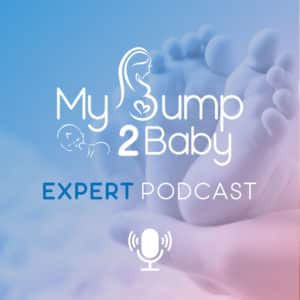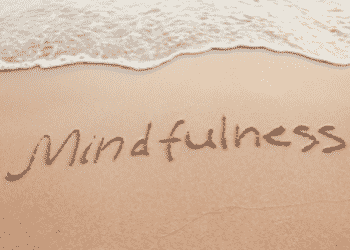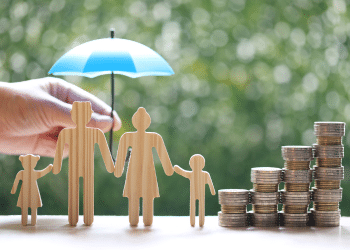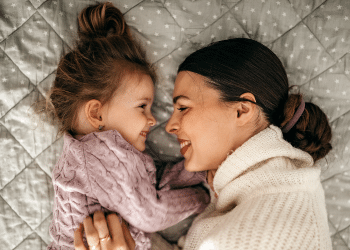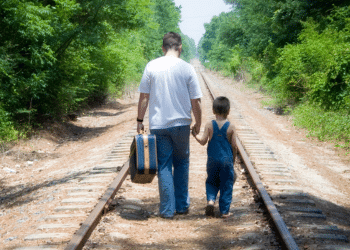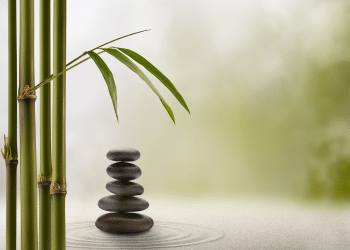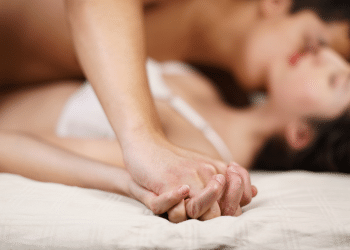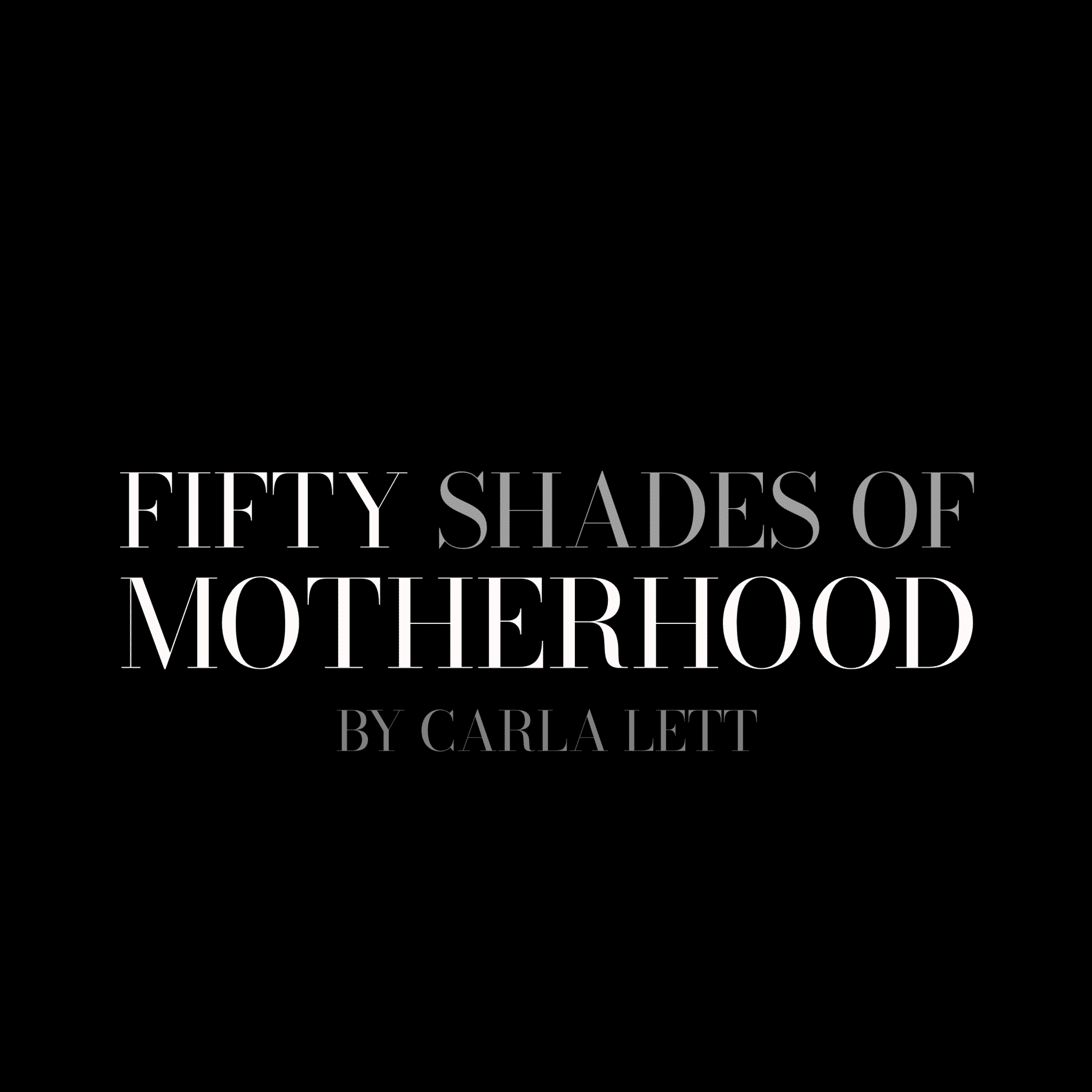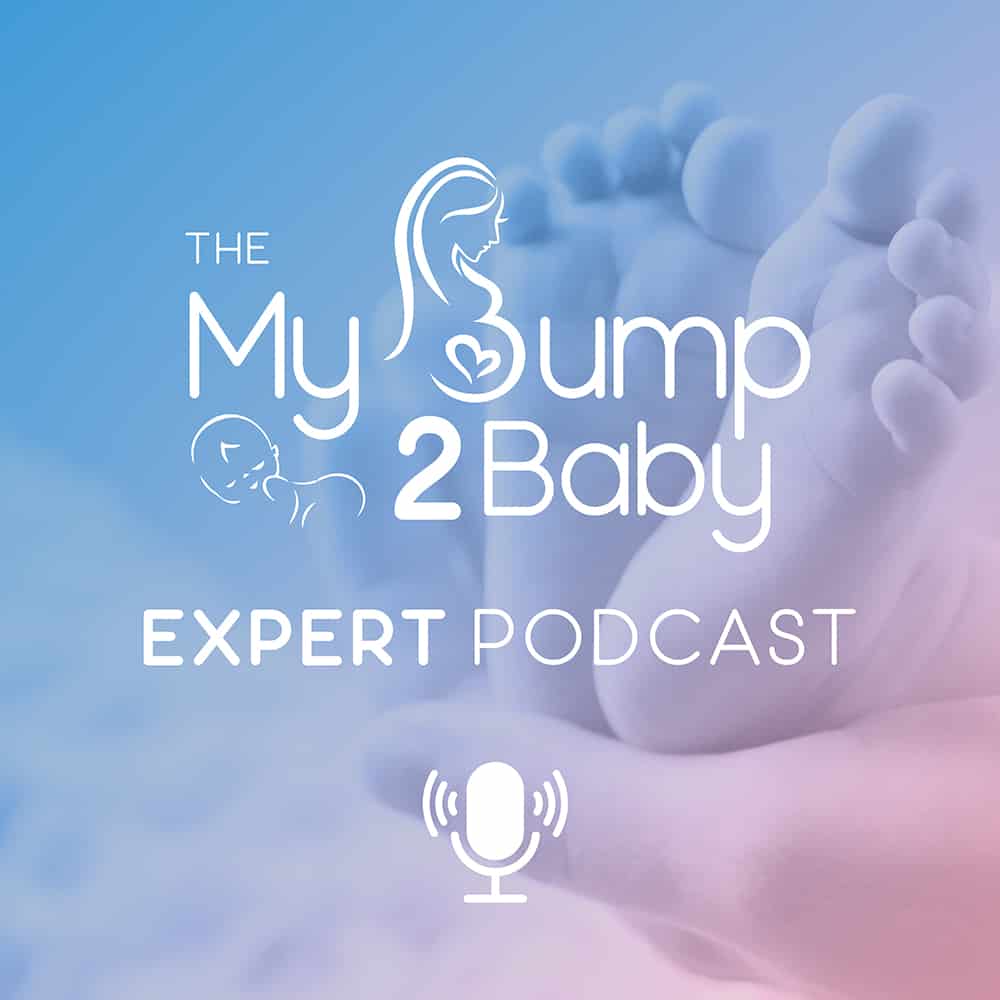- Mindfulness for Mums
On today’s episode of the MyBump2Baby expert podcast Carla speaks to Clare Hales from Developing matters all about mindfulness for mums. Clare discusses the benefits of mindfulness, how to become more mindful and some tips and tricks to get you started on your mindfulness journey.
For more information about Developing Matters see the links below:
Website: https://developingmatters.com
Facebook: https://www.facebook.com/developingmatters
Email/Tel : [email protected]
Carla: This podcast is sponsored by My Bump 2 Baby family protection and legal directory. To find your nearest advisor or family law, solicitor, head over to www.mybump2baby.com/ familyprotectionlegal.
[00:00:21] Do you love the idea of being your own boss? What about saving money on childcare? Because you can actually work flexibly around your family.
[00:00:33] My Bump 2 Baby is rapidly expanding, and we are looking for people to run that own pregnancy to preschool hubs in their local area. Full training is provided ongoing mentor support, fantastic regular team incentives. A bonus scheme uncapped commission, review products for free and review days out too.
[00:01:02] If you are interested in being the, My Bump 2 Baby manager for your local area, email us [email protected] .Limited space available.
[00:01:28] Hello, and welcome to My Bump 2 Baby Expert Podcast, where we bring experts from all over the UK to answer your questions on everything, pregnancy to preschool.
[00:01:50] Hello everybody and welcome to My Bump 2 Babies Expert Podcast. Today, I am joined by the lovely Clare Hales from Developing Matters. Today we are talking a bit more about mindfulness, mindfulness for mums, what it means, how you can do it and techniques that you can use. I hope you enjoy this episode.
[00:02:20] Hello everybody and welcome to My Bump 2 Babies expert podcast. Today, I am joined by the lovely Clare Hales from Developing Matters. And today we are going to be talking all about mindfulness for mums. How are you Claire?
[00:02:37] Clare: I’m good. Thank you. Thank you very much for meeting with me today.
[00:02:41] Carla: Oh yes.Looking forward to speaking to about this, because mindfulness is something that is becoming increasingly popular. I think since a lockdown, I think a lot of people have been looking more and more into mindfulness and how to do it, et cetera. And there is a lot of different techniques. Isn’t there?
[00:03:01] Clare: There’s a massive spectrum, really and you know, there’s so he can do, um, and look into, and I think people can get quite confused with that as well. So I think sometimes it’s good to understand a little bit more about it and what you can do as an individual.
[00:03:18] Carla: Definitely. Definitely. I know. Since the lockdown, my health anxiety, which I’m quite open about, got really, really bad. And like, to the point where, you know, you worry about everything, don’t you. And I was just like, worried. I feel like a pain in my head. I’m like, Oh God. And mindfulness literally that has been, um, a saviour to me actually, because it just kind of brings you back into the present moment doesn’t it. So, so what, um, I’m going to ask you a few questions if that’s okay Clare, so people can understand a bit more about mindfulness and different techniques that they can use.
[00:03:52] Clare: Yep okay.
[00:03:53] Carla: Perfect. So Clare, for the people that want to know about mindfulness, but don’t know really what it is, what, what is mindfulness.
[00:04:02] Clare: So the term mindfulness it does come from thousands of years of practice. A lot of people who don’t understand about it can think of it more as a Buddhist tradition and quite spiritual and meditative and things like that. But, actually, there’s, there’s like a modern mindfulness aspect of things now, which has come more from Western practices and mindfulness issues. Can be used for health and wellbeing. And there’s lots of research. There’s lots of courses around mindfulness, but apart from all that, even though it does sound quite complex, mindfulness is just paying attention to the present moment. That it’s as simple as it can be. It’s just noticing what’s going on around us. And as you said, with your mind being very, very busy, we have thousands of thoughts a day. We’re battling with thoughts all of the time and it just, our brain just doesn’t give us that chance to just take a mindful moment and just take a step back and notice what’s going on around us.
[00:05:01] Carla: Yeah, no, that’s, that’s a brilliant explanation because it is all about being aware of your surroundings. Isn’t it? And, and just knowing what’s going on and taking yourself, almost taking a step back, isn’t it sometimes.
[00:05:13] Clare: Yeah. Yeah. And it’s, it’s taking a step back and noticing obviously the outer environment, you know, we’ve got all these resources around us to be very mindful in the, in the natural world and even in our home. But, we also have to understand internally as well, you know, how we feel, what we’re thinking about, how we’re breathing. So there is quite a lot to it, but, you know, we can do a lot around it or we can just do a couple of moments a day.
[00:05:40] Carla: Yeah, no, that’s brilliant. I mean, I, since doing mindfulness myself, you know, just even, actually it sounds a bit silly, but actually just noticing the colour on trees or birds in your garden, these are all things that I never actually used to notice. Cause I’d go round rushing around and you never really, you sit, you can see, but you’re not really seeing if you know what I mean. So it’s actually, it does, it does make a big difference.
[00:06:04] Clare: I, I I’m the same as you. I love now, and it’s just looking into the sky. It sounds really silly but, just or, you know, just watching the clouds moving and everything’s changing all the time and it just reminds you that, you know, things change, nothings the same, you know, we’re constantly moving and just to notice look up rather than looking down and just thinking about that before we move on, what I’ve noticed since I did my mindfulness course is how much we don’t look up anymore. And I notice people on the phones, a lot, looking at the phones, checking things as they’re walking, or checking things at the school gate. So just actually just stopping and putting your phone away sometimes can be, can be something that we can be really mindful of.
[00:06:46] Carla: Mm, absolutely. Yeah. So Clare, what are the benefits of being a mindful mum, um, and learning a bit of mindfulness once you become a mum?
[00:06:56] Clare: Well, obviously, I mean, there’s lots of benefits for yourself and obviously for your children as well. The thousands of thoughts we have, we can have approximately 60,000 thoughts a day. Now my children are eight and 10 now. And I remember everything that I used to worry about when they were younger. You know, we’ve got, I’ve got my worries now I’ve got my worries when they go into their teen years. And it’s all what ifs, all our worries are what if this, what is that? And it can just overtake our thought processes and while we’re worrying about all these things. We’re not actually noticing what’s going on in the present moment with them. You know, how they’re acting, how the feeling, communicating with them, things like, um, so just being a bit more mindful, just can help us connect with our children quite a lot. It can help us to not be as forgetful. You know, when we’re rushing around, we’re so busy forgetting things. Living on auto pilot quite a lot, trying to get through the day. As you say, we just miss those moments as well. Our interactions with our children can be a massive benefit if we are being a little bit more mindful as well. And also its being a good role model as well to your children, you know, to let them know that it’s okay to stop and observe and be present. And we don’t have to be busy all the time and they kind of learn from us. And I’m hoping that in this generation, we can be a bit more mindful. We can pass it on to our children as they grow up and they won’t get to the age of 34, you know, not know about it. Hopefully it’s something that they can be brought up with.
[00:08:30] Carla: Yeah, no, that’s really interesting. It’s definitely, definitely would help the future generation I’m sure. So with mindfulness, obviously, I’m assuming that can help massively with stress and anxiety for mums as well, which is something we’ve often talked about on, uh, on my podcast, because a lot of us struggle with that is that, is that something that mindfulness can not help those, you know, you feel less stressed and less anxious.
[00:08:58] Clare: Definitely yeah because like I say you taking that time out aren’t you. With, with mindfulness as well when we do feel stressed and worried and our thoughts are overtaking us. Thats our stress response has kicked in. And if we can just notice that and pull ourselves back a little bit, even if it is doing a mindful moment or just having a distraction and stopping those thoughts from happening. Can just stop, you know, stop us getting carried away with all our thought processes. We also have. I don’t know if you’ve ever spoke about the fight flight or freeze response. And when that kicks in, that can build on stress. Obviously we can feel stress when we’re worried and we hold onto it and we can hold onto it for too long. And then we hold onto it and we feel more stressed, we feel more tired, more irritated. So if we can think about mindfulness as a strategy to release that stress or to get rid of that stress that can really, really help all our hormones that are affected by the stress response. You know are adrenaline running through our bodies. You know, there’s lots of bad stress that we can have. Stress can also be good for us cause it keeps us alert, you know, and keeps us active. But, when we’re holding onto it and not letting it go, it manifests and the anxieties grow and the stress grows. So we need to think about what are our tools and techniques that can help us to get rid of that.
[00:10:23] Carla: That was going to actually be my next question. What, what kind of, what kind of tools and techniques can you use to be more mindful? Have you got any suggestions?
[00:10:33] Clare: I’ve got lots yeah. So it depends obviously on the person and we can have something that’s quite, like big practices. So what I did, when I started my mindfulness course was I did a mindfulness stress-based reduction course at Liverpool with breath works. So there’s a big involvement in learning about the cognition of mindfulness and doing 40 minute meditation a day, you know, building that into your life. Now that isn’t sustainable, obviously for the majority of us cause they such a big practice to do. But if you could do that for eight weeks, its really really good, you can develop your own skills and then you can fit into your pattern of life what you want. That’s quite a formal practice of mindfulness, but then we can also water it down a little bit. And we can get an app and do meditations online or through an app. My go to is Headspace. I really, really love the Headspace meditations they’re really, really good to do. So that is obviously committing time for meditation.
[00:11:39] Now, if thats something that someone doesn’t want to do. We can water it down again and we can just do some breathing techniques for a couple of minutes a day. We can do sensory activities because when we’re doing sensory activities were using different parts of the brain, rather than just being at the front of our brain at the front of our brain is where we think. And if we’re stuck in that part of our brain all the time, we’re not using, uh, You know, the rest of our brain for sensory experiences and bringing us into the present moment. And then you’ve just got little mindfulness strategies, like we’ve mentioned before, looking at the colour of the trees, looking at the sky, noticing how we’re eating, noticing how we’re moving. You know, this, there is so many different ways that we can, we can break, break it down. There’s books that we can buy. There is little like 10 minute meditation books that you can buy as well. You know, so you’ve got those little reminders and things like that.
[00:12:38] Carla: Yeah, no, that, that does cover quite a lot. Now I know meditation isn’t for everyone and it can take a little bit of practice because when we’ve spoke to parents around meditation, some people, oh I’ve tried it and it was really difficult. I think, um, I’ve been told before that, you know, if you do want to meditate, you know, you can do it gradually, so you can start off, you know, doing a few minutes and then increasing.
[00:13:02] Clare: Yeah, I get, I get that quite a lot. To be honest, when people say I’ve tried and it didn’t work. And I think the expectations of meditation is it’s not understood. You know, if, if we meditate for a couple of minutes a day, It’s not about being relaxed, mind being empty. It’s about noticing what’s going on. And if thats if we are struggling. That’s noticing what’s going on if its noticing we’re distracted. That again is noticing what’s going on and it’s never perfect. And I think because people never get that experience because they don’t try it for long enough. It’s a shame because you know people kind of stop, stop doing it. And, but as you said, you can do there is other, you know, we have to adapt it for us. We’re all individuals aren’t we? So even just doing a two minute meditation on your own, just listening to some music and notice yourself breathing in and out. A really good focus for doing a couple of minutes, meditation is just counting your breath or just saying to yourself, breathing in, breathing out, or it might even be lighting a candle and watching the candle flicker for a couple of minutes and just seeing if you can just focus on that. You know, so there is, there is adaptions that we can do. And it is obviously proven to help the brain as well. And a little bit like exercise, you know, I love running, but I’d never run a marathon, you know so its watered down again. You know, what are your expectations what you’re going to get out of it. And as well with meditation you know, it’s not something that once you to do it a few times. You feel great. It’s just like with exercise, if you do it for a couple of session yeah you’ll feel good . But if you stop doing it. And then you’re going to go back to feeling unhealthy, or, you know, you know, whatever the reason was you were doing it for. So it is something that you have to keep practicing, keep practicing, and it’s a muscle the brain, and it needs training constantly, you know? And it will go back to the old patterns of not of not wanting to do, to do anything. So it’s a battle.
[00:15:08] Carla: Yeah, I think it’s finding what’s right for you isn’t it as well. Because a lot of people like journaling and, you know, I’ve got a little book next to my bed and I started having, because as I mentioned before, I’ve got this health anxiety instead of, my cousin gave me this advice it was great actually, she said have a worrying half an hour at night. And not really like, instead of worrying about it in the day, if I was worrying, I think right tonight, I’ll write that down. What I was worrying about instead of we thinking about it at the moment, and that actually really helped me just having to do a bit of a journal at night and you don’t even need to put a lot in there just how you’re feeling, what you’re thankful for.
[00:15:45] Clare: Yeah, exactly. It’s just getting out there, isn’t it? Because it it’s in our brain. It just manifests and gets bigger and bigger and bigger. And. Yeah, the journaling’s great. And you know, it doesn’t have to be extreme. Like you say, it can just be something little and it really does help, help to get it down. Especially at night. Obviously our brain thinks when we’re wanting to relax, oh this is the time that you can think, and you can plan, and you can think about that conversation. You had. You know, your mind is always constantly dragging you off into the past, worrying about the future. So just having that time to just write it down if we can’t speak to people about things is a really really good method to help our busy mind.
[00:16:26] Carla: That’s great.
[00:16:27] Clare: You know, As mums we’ve got, we put so much pressure on ourselves and, you know, we, we don’t need to do really, it like taking a step back. And as you say, writing things down, having distractions as well, you know, when our minds are really, really busy, even though it is good to do meditation, breathing techniques are amazing I really recommend different breathing techniques, but just. Distractions are good if we are caught up in a moment or something. My go to is just putting some music on and it stops those thoughts. If you think of your thoughts, being like a remote control, you know, we’ve got the power to change our thoughts. We can shift our attention to anything we want.
[00:17:06] So we can just stop. We can relax a bit more if we’re, you know, with, with the children and we’re getting really stressed, or we are getting really worried. You know, sometimes I’ll jump up and have a dance with them and make us laugh and it just switches you ,you know, your attention from your overthinking and just brings you back into the present moment and doing something that you enjoy. So that, you know, there are loads of little concepts really that we can think about to try and help, help our brain a little bit more.
[00:17:32] Carla: Yeah. And it’s just, just remembering to do it. I mean, one, one I did when I was first starting, which my auntie actually recommended. I’m getting all these recommendations, but was to every time I washed my hands. To just take a bit of extra time and really kind of use all your senses to feel the soap and then like smell it and listen to the suds. And it sounds a bit funny, but it is using all your senses to be in that moment. And that got into a bit of a habit for me. So now every time I wash my hands, I feel myself being able to relax a bit.
[00:18:08] Clare: Yeah. Yeah. They do use that in the mindfulness course about, you know, when you’re cleaning your teeth, when you are eating. Cause obviously when we’re doing all these things like washing our hands, like you say, cleaning your teeth, eating, showering , we’re thinking because are body’s automatically doing it our minds on autopilot thinking about other things . And we don’t need to, like you say, we can take it all in. We obviously can’t do that all the time or else we’d never get any planning done. But, it is just them moments, like you say, , and it’s really good you’ve mentioned that because I think like to fit, mindful moments like that into your day, there has to be an intention and you have to have a reminder, something has to remind you. So it might be that you write down at 10 o’clock every day. I’m going to be mindful or when I wash my hands, I’m going to be mindful of, you know, one of them triggers that are going to remind you to think about those things. Thats really, really good, we have to try really hard to be mindful and have intentions and reminders.
[00:19:07] Carla: I think, I think that’s the thing, isn’t it being a parent, you can just be so busy that you think, well, where have I got all this time from but, if you’re going to be doing something anyway, I mean, it might even be a bit of mindful cooking where you’re really smelling the food and tasting it. And you know, that, you know, just being, being there, maybe using the mindfulness in a moment that you actually using at the moment, but .
[00:19:30] Clare: Yeah, exactly. And there doesn’t have to be anything where you’re going out it’s easy, you know, it’s easy. You have to put your kit on and go for a run of anything. You know, like you say, it’s say boiling the kettle is a great one for me, because I remember when my children were young and. You’ll make a brew and then you’ll forget you’ve made it and you will make another one or you’ll see that you’ve not drank it or, you’ll boil a kettle three times, because you’ll go off and do something else, you know, put a wash in or so, you know, tidy up. So rather than do that its waiting for the kettle to boil and noticing the sounds, making the brew, just having that couple of seconds because if not, we just get so distracted trying to multitask is a big thing for mums .And we don’t have to multitask all the time. Let’s just, just bring it back a bit and just have those little bit of moments to settle, settle the brain.
[00:20:23] Carla: Yeah, absolutely. Totally agree. And Clare, can you tell us a little bit more about where Developing Matters, is and how people can find you and also what it is you guys do?
[00:20:35] Clare: Yeah. So, um, Developing Matters. We’re based in Wigan. We, uh, we were called Studio Serenity for a few years, but obviously because of lockdown and us having to work with schools, we work with schools quite a bit. Being online I decided to change the name, you know, to obviously fit how we’ve grown through lockdown in the pandemic. So we’re bigger than the studio now, and, you know, we are getting out there a bit more. So before I set up this community interest company in Wigan, I was a special needs teacher. So I’ve got a big background in working with special needs. And at the moment we do wellbeing and mindfulness courses for children and young people. And what we found is it quite difficult to reach out to children and young people, because they’re so busy at school. And they’re so busy after school that even though we can still work with children and young people, if they need with anxieties and life events that happening our new work is to do a bit of a trainer, trainer approach.
[00:21:37] So we’ll be doing some training in schools, so school staff can practice the techniques and do the mindfulness and wellbeing course with the children in their school. And hopefully, well, obviously that will reach more children and have a bigger impact because it’s something that hopefully that will be embedded into whatever school takes, you know, takes the training and then the learning and the development.
[00:22:03] Carla: Hm. No, that’s that’s brilliant. So, um, we will put your links on our show notes anyway. So anyone that wants to get in touch with you can, can you support parents nationwide or is it just in Wigan?
[00:22:16] Clare: Oh yeah no, hopefully yeah it will be nationwide. So we we’ve only got links with Wigan schools at the moment, because for the past five, six years before lockdown I was going into schools, you know, doing the course myself, but, obviously with, with being online now and zoom and everyone’s so used to it, we can do virtual training and we will send out the manuals and the courses and then do some training around it online. So its really, really good that we can reach out to little bit further now, you know, with costs and time, you know, it’s, it’s a benefit, really being online with things like that. We are launching the website in May. I just got a couple of tweaks and then we’ll be doing a big launch with the website.And that will have all the training details on there.
[00:23:02] Um, we, we have got some mindful resources and cards, all these little activities, what we were talking about before the breathing techniques and things. And the reminders we do actually sell some resources that people can buy.And we can post out and then if anyone wants any advice or support about them then, you know quick phone call or email or zoom, you know, things like that. We can set up anywhere really.
[00:23:26] Carla: That’s brilliant. That’s brilliant. Well, thank you so much, Clare, for coming on today and sharing a bit more about mindfulness.
[00:23:33] Clare: Oh, thank you very much for having me. It’s been lovely to speak to you today.
[00:23:37]Carla: Thank you.
[00:23:41] Thank you for listening to My Bump 2 Babies Expert Podcast. If you would like to find help and support from experts in your local area, head over to www.mybump2baby.com and you will also be able to find local pregnancy to preschool groups, classes, businesses, and services in your local area.

